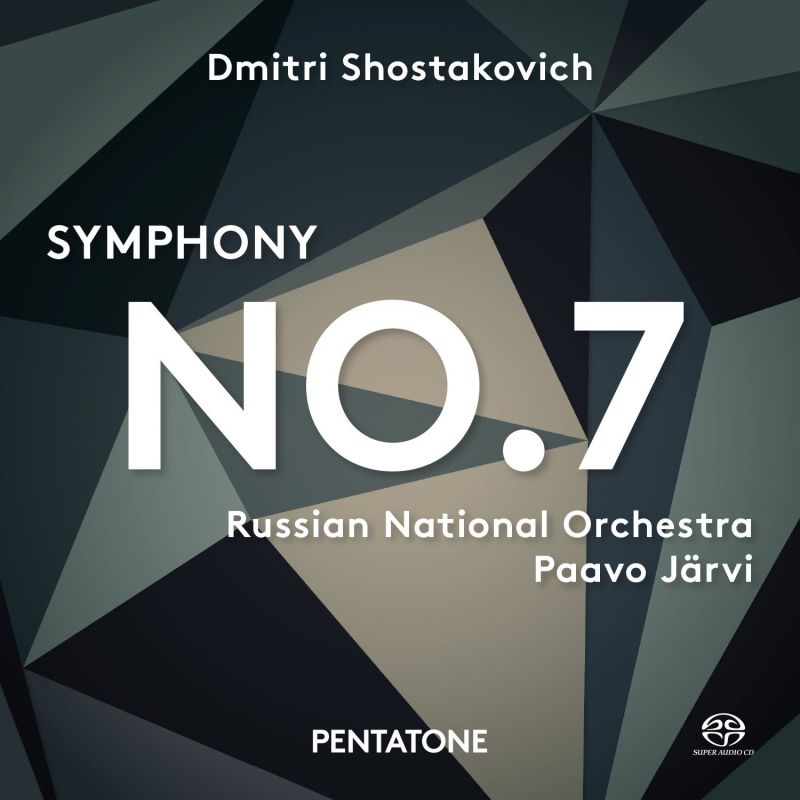SHOSTAKOVICH Symphony No 7
View record and artist detailsRecord and Artist Details
Composer or Director: Dmitri Shostakovich
Genre:
Orchestral
Label: Pentatone
Magazine Review Date: 05/2015
Media Format: CD or Download
Media Runtime: 72
Mastering:
DDD
Catalogue Number: PTC518 6511

Tracks:
| Composition | Artist Credit |
|---|---|
| Symphony No. 7, 'Leningrad' |
Dmitri Shostakovich, Composer
Dmitri Shostakovich, Composer Paavo Järvi, Conductor Russian National Orchestra |
Author: Edward Seckerson
It never ceases to amaze me how the daring musical metaphor at the heart of this first movement for so long negatively coloured opinions of the rest of the piece. The point of it was roundly missed as the tune which might have set Stalin’s toe tapping underwent its terrifying Boléro-like mutations. Järvi and his engineers offer ruthless clarity and precision, exposing a rogue E flat clarinet with a flash of the theme at one point (never heard that before) and lacerating flutter-tongued trumpets as the shock and awe peaks. Shostakovich’s instruments of choice for desolation – the bass clarinet and bassoon – express the numbness and loss with real eloquence.
It may be sacrilege to say that at times one wishes the Russian National Orchestra were less refined and more redolent of Russian orchestras of days gone by – but there is no denying the excellence of the playing. The ghostly dance that is the Scherzo is subtly coloured in the return with harp and fluttery flutes atmospherically underpinning the spookiest of bass clarinet solos. And there is pellucid beauty in the slow movement, where the strings spin out a passage of genuine heartbreak from their stark recitative.
So while I’m not sure I would go for Järvi over Petrenko and the RLPO among more current recordings (I also have vivid memories of Bernstein and the Chicago Symphony on DG), the atmosphere of a real event is there, you might even say written into the piece. That long, slow, defiant, inexorable build to the coda is as gripping here as it always is – and, as the opening theme returns in hard-won triumph (that’s why it is so important that its vaultingly optimistic character is properly established at the start), there is that thrilling tenuto in the trumpets lifting mind, body, and spirit into the final pages.
Discover the world's largest classical music catalogue with Presto Music.

Gramophone Digital Club
- Digital Edition
- Digital Archive
- Reviews Database
- Full website access
From £8.75 / month
Subscribe
Gramophone Full Club
- Print Edition
- Digital Edition
- Digital Archive
- Reviews Database
- Full website access
From £11.00 / month
Subscribe
If you are a library, university or other organisation that would be interested in an institutional subscription to Gramophone please click here for further information.




